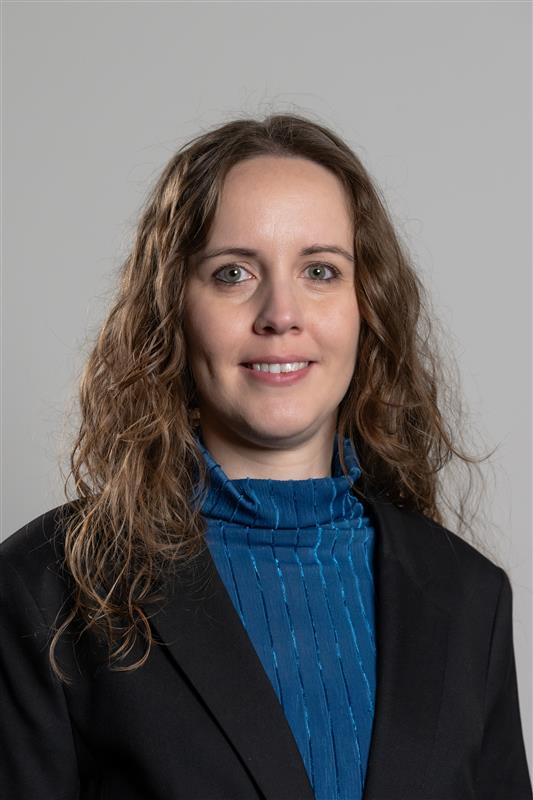Magazine
Laura Espinosa — Europe’s first line of defence against contagious diseases
“To put it briefly, we are the detectives of potential public health threats”, Laura Espinosa tells EUobserver. Espinosa is an expert on epidemic intelligence at the European Centre for Disease Prevention and Control (ECDC), a group few people have heard about — thankfully.
Alongside her relatively small team of colleagues in Stockholm, she every day sifts through about 8,000 articles and data signals — from social media posts and news headlines to official health reports — searching for potential outbreaks of infectious diseases.
Their task is deceptively straightforward: to detect, validate, and alert European countries about emerging threats before they escalate into crises. 24 hours a day, seven days a week, every day of the year.
The complexity lies in interpreting signals. Suspicious signals could be anything from a new strain of influenza reported in a local newspaper to social media chatter about unusual pneumonia cases, Espinosa explains.
Each piece of information must be quickly validated, first through official national health sites or reliable social media accounts — and, if needed, through direct outreach to a network of public health officials across the EU and globally.
Timing is critical. Espinosa stresses that information must be not only accurate but also timely. "We can’t sit on information. We need to be fast and good," she says. Her team's effectiveness relies on well-practised collaboration across borders, a quiet but powerful demonstration of European unity in public health.
Yet, despite the high stakes, the success of Espinosa’s work is largely invisible.
"Covid changed everything. It required all hands on deck, constantly"
Success often means nobody notices they’ve done anything at all, she admits, adding that some of the most satisfying days are those when threats are identified early enough to prevent widespread alarm or even awareness.

She recalls one instance clearly: the early days of the 2022 Mpox (monkeypox) outbreak. Espinosa and her colleagues noticed scattered reports of unusual cases outside Europe. They swiftly connected with global partners, confirmed the cases' significance, and alerted European countries to be vigilant. Airports soon after put out public notices describing Mpox symptoms, advising travellers to report concerns immediately upon return. It was a subtle yet effective intervention.
Espinosa explains that while there might be uncertainty, the biggest effort goes into verification of the signals they receive. “But we have to strike a balance. We cannot spread alarm prematurely, yet we must act swiftly enough to make a difference." Espinosa’s team is trained precisely for these moments, continuously refining protocols and improving tools to manage such delicate decisions.
"Diseases don’t respect borders"
At the height of the Covid-19 pandemic, Espinosa faced perhaps her most challenging period. The sheer scale and duration of the pandemic — lasting over three years — were unprecedented in her tenure. "Covid changed everything. It required all hands on deck, constantly," she says.
But what many might overlook is that amid the global chaos of Covid-19, Espinosa and her team also had to maintain vigilance for other threats like hepatitis outbreaks among children and the Mpox surge in Africa. Espinosa is clear-eyed about the lessons learned: "Diseases don’t respect borders," she emphasises.
Behind Espinosa’s calm and methodical demeanour lies deep satisfaction with her highly-consequential yet largely below-the-radar role. "It's fulfilling work," she reflects, highlighting the quiet triumph in daily accomplishments, like verifying a suspicious signal before it becomes news. She also praises the collaboration that defines Europe's epidemic intelligence network, a cooperative system built on trust and mutual responsibility.
She concludes with a simple hope for European citizens: understanding. "People may not see the coordination and effort that goes into keeping Europe safe from outbreaks, but it’s there," Espinosa says.
She is a quiet guardian, part of a crucial, invisible shield protecting Europe's health. And to her — and the dozens of Epidemic Intelligence workers across the EU and the world — anonymity is a badge of success.
And do let us know if you're interested in a physical copy of the magazine here.
This year, we turn 25 and are looking for 2,500 new supporting members to take their stake in EU democracy. A functioning EU relies on a well-informed public – you.
Author Bio
Alejandro Tauber is Publisher of EUobserver. He is Ecuadorian, German, and American, but lives in Amsterdam. His background is in tech and science reporting, and was previously editor at VICE's Motherboard and publisher of TNW.
Tags
Author Bio
Alejandro Tauber is Publisher of EUobserver. He is Ecuadorian, German, and American, but lives in Amsterdam. His background is in tech and science reporting, and was previously editor at VICE's Motherboard and publisher of TNW.